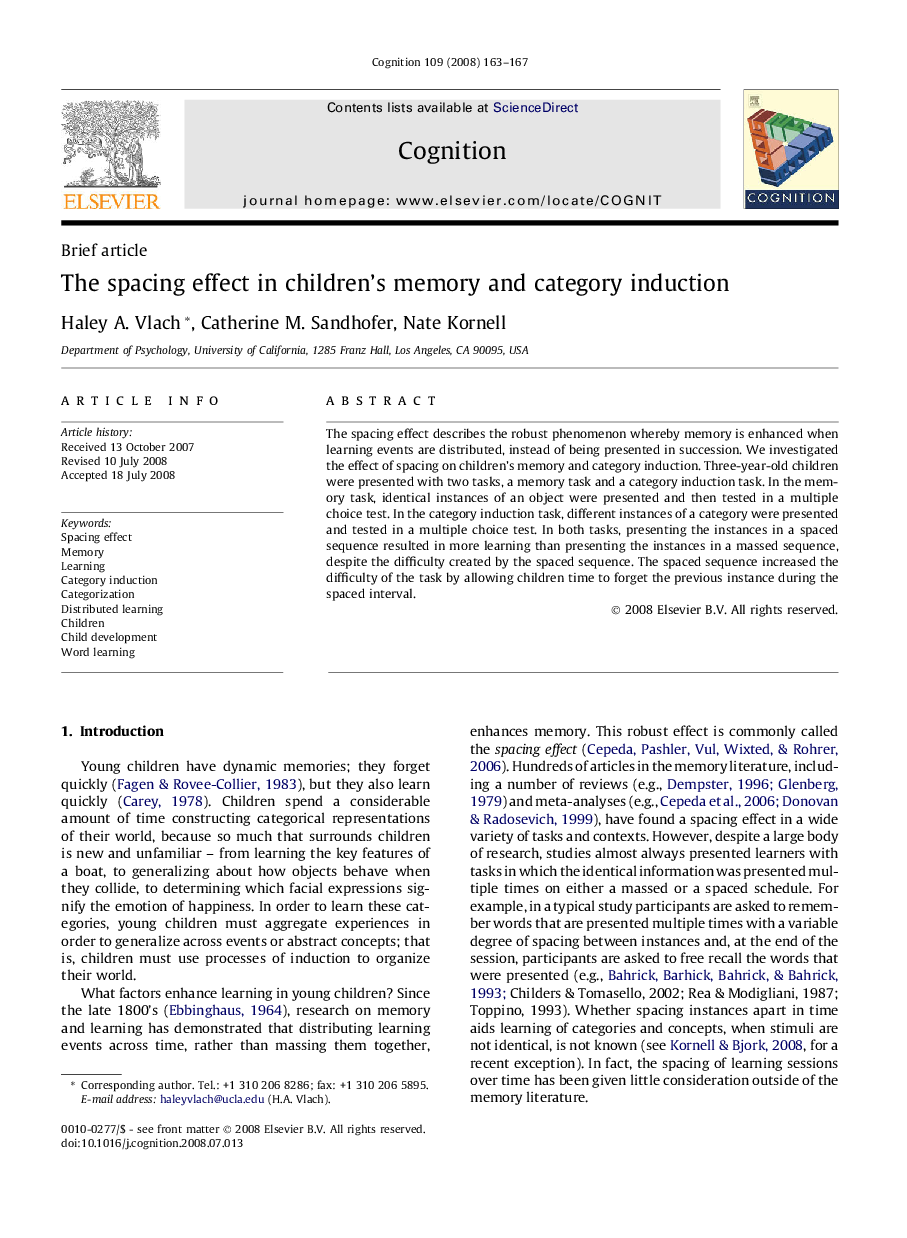| Article ID | Journal | Published Year | Pages | File Type |
|---|---|---|---|---|
| 10458039 | Cognition | 2008 | 5 Pages |
Abstract
The spacing effect describes the robust phenomenon whereby memory is enhanced when learning events are distributed, instead of being presented in succession. We investigated the effect of spacing on children's memory and category induction. Three-year-old children were presented with two tasks, a memory task and a category induction task. In the memory task, identical instances of an object were presented and then tested in a multiple choice test. In the category induction task, different instances of a category were presented and tested in a multiple choice test. In both tasks, presenting the instances in a spaced sequence resulted in more learning than presenting the instances in a massed sequence, despite the difficulty created by the spaced sequence. The spaced sequence increased the difficulty of the task by allowing children time to forget the previous instance during the spaced interval.
Keywords
Related Topics
Life Sciences
Neuroscience
Cognitive Neuroscience
Authors
Haley A. Vlach, Catherine M. Sandhofer, Nate Kornell,
